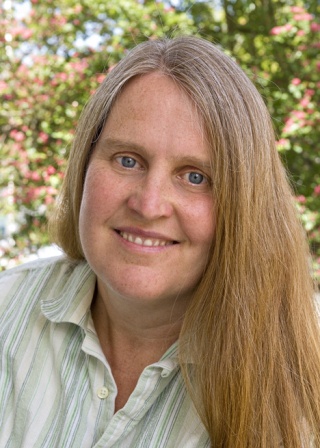Lovel Pratt was elected to the San Juan County Council from San Juan South tonight, succeeding Kevin Ranker, who opted to run for state Senate rather than reelection.
At 8:21 p.m. with all precincts reporting, Pratt received 810 votes to Petersen’s 626. The voter turnout was 94 percent in this race; overall, the voter turnout was 72 percent, with 8,199 ballots received of 11,360 mailed out to voters.
Updated results will be released Wednesday at 5 p.m.
Today’s election means two new faces will join the County Council in January: Pratt, from San Juan South; and Richard Fralick, a former county freeholder who will represent Orcas West. Fralick received 771 votes, Mindy Kayl received 654. Fralick will succeed Alan Lichter, who lost in the primary.
The 2009 County Council will also be the first council comprised entirely of members elected under the county charter.
County Council members are elected by district, serve four-year terms and receive $34,000 a year plus benefits. The County Council is the legislative authority of the county, approves the annual county budget, is responsible for county property and funds, considers land-use appeals, provides for county infrastructure, roads and buildings, fixes the amount of county taxes according to law, and serves as the county franchising authority.
The council’s challenges are different than when the campaign season began. A decline in sales and lodging tax revenue has the county looking at making $1 million in budget cuts for 2009.
Petersen and Pratt brought business and government experience to the campaign.
Petersen, who lives on Blackberry Lane, has served as a county planning commissioner and an elected freeholder. His most prominent business accomplishment is the development of Friday Harbor Center on First and Spring streets after gthe devastating fire of May 2002.
Pratt, who lives on Cattle Point Road, is a county planning commissioner, led the San Juan Community Home Trust during the development of the Salal neighborhood on Carter Avenue in Friday Harbor, owns Mulno Cove Farm and is manager of the San Juan Islands Agricultural Guild’s Permanent Farmers Market project.
During the campaign, Petersen supported keeping the solid waste transfer station where it is.
“Fairness is the basic issue. It is not fair to move it into someone else’s backyard,” he said during the campaign. “Zoning must be predictable. People in rural residential zones have a right to certain expectations for their property.”
He supported reining in county spending and knocked the county for buying “shiny new county trucks and SUVs,” for spending money on “needless” studies, and for “excessive” real estate purchases.
Regarding annexation by Friday Harbor to accommodate affordable housing, Petersen took a cautious approach.
“We should always be aware of the unintended consequences of decisions and proceed only when all the costs are known and the interests of the people we represent are protected,” he said, adding, “There is more low-cost rental housing available now than I’ve seen in years. This proposal could flood the market with new houses, reduce the value of existing homes, and drive up taxes and utility costs to current residents.”
Petersen said he would use his council position to focus on local issues and not “solve the world’s problems,” a criticism of a council resolution on climate change.
During the campaign, Pratt was undecided on whether the solid waste transfer station should be moved or modified, opting to wait until the final Environmental Impact Statement was completed. Whatever the final outcome, she believed impacts to neighbors must be mitigated.
Pratt said the County Council and staff were going to have to work together to identify budget priorities and maintain a balanced budget and healthy reserve. “I think it is essential that the solutions to our budget challenges be a cooperative process, but I know that if elected I will have to make the difficult choices and I am prepared to do that,” she said during the campaign.
To offset the financial impacts of annexation for affordable housing, Pratt said the town and county must collaborate on applications for grant funding such as Community Development Block Grants. In economic development, she supports further development of agriculture and geotourism, as well as education and marine research.
“The more local foods we eat, the more we reduce our carbon footprint and support and enhance our beautiful, pastoral, agricultural landscape that we so value,” she said. “The more local foods we produce, the more self-sufficient we can be and the better prepared we will be in the event of an emergency that interrupts our supply of food from the mainland.”
Pratt pledged to travel to Olympia one day a month when the Legislature is in session “regardless of compensation” to work with legislators on county issues, including ferry service and a sustainable source of funding for ferries.
Though the race for the District 1 council position was her first run at political office, Pratt is no stranger to political campaigns. She assisted her husband, Boyd, in successive school board elections and has been active in campaigning on behalf of school funding levies. And her mother was seeking a ninth term in the New Hampshire state House on Tuesday.
Campaigning for county office, she said, proved as inspiring and as it was demanding.
“The process was a lot more involved and time-consuming than I anticipated,” Pratt said. “But it turned out to be a far more enjoyable experience than I anticipated.”
— With reporting by Scott Rasmussen and Richard Walker




